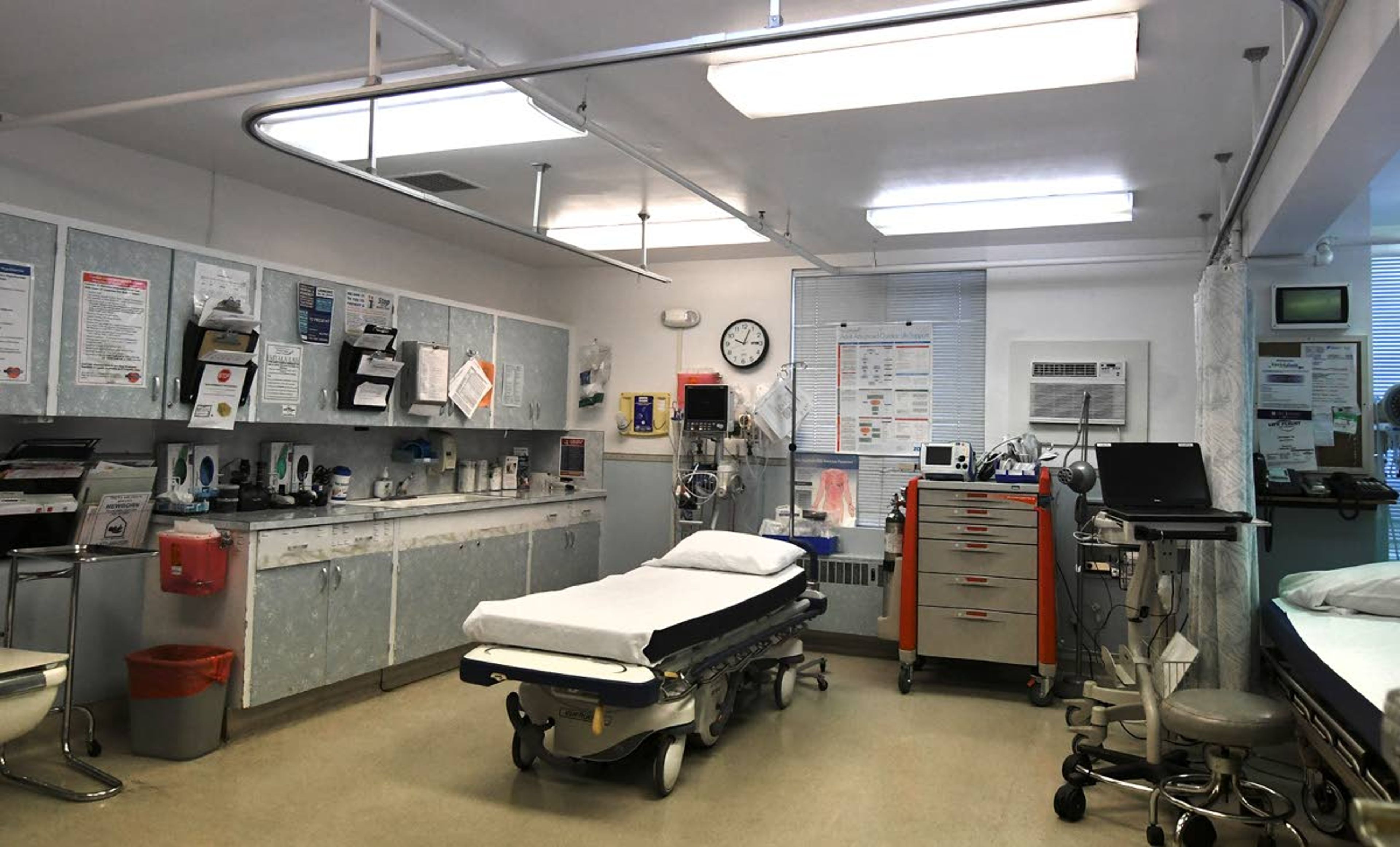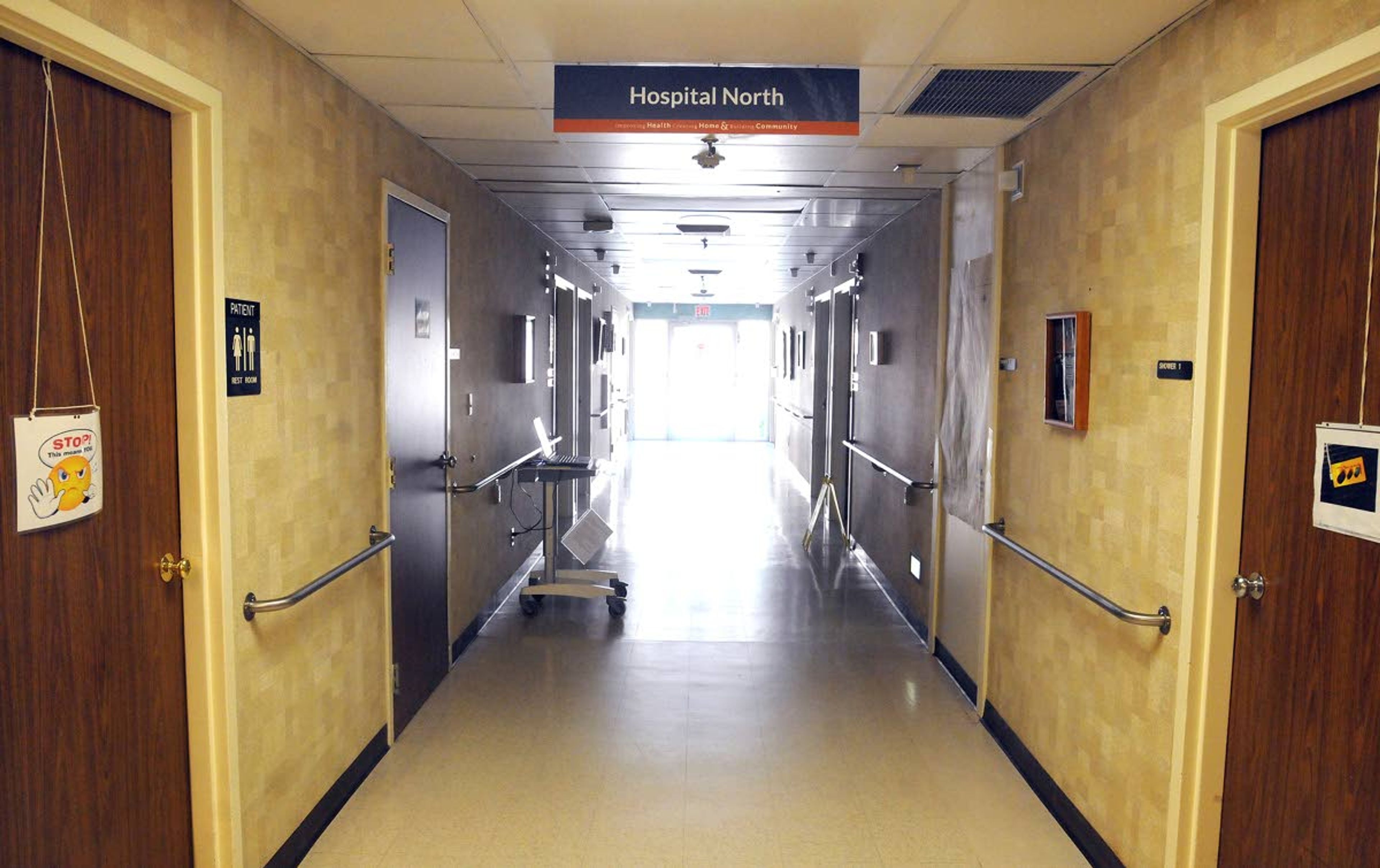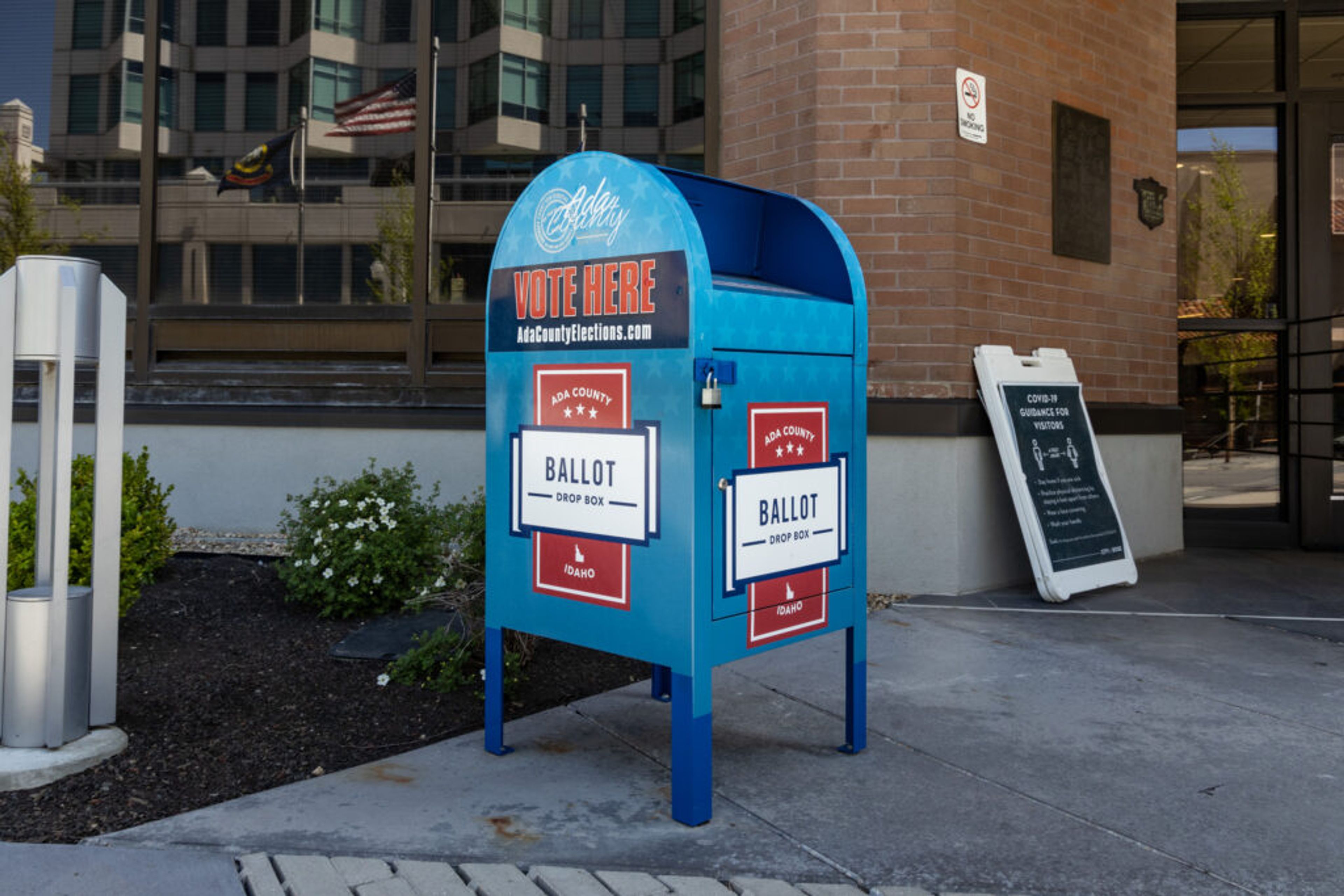Prognosis: uncertain
Garfield County residents worry about future of long-term care as hospital district considers an agreement with Tri-State Memorial Hospital in Clarkston
POMEROY — Suzanne Woodsum-Reed’s brother has compared his long-term patient accommodations at the Garfield County Hospital District to a five-star hotel.
While the 78-year-old can seem healthy and coherent, he suffers from dementia. He is unable to drive or be left alone, making it impossible for Woodsum-Reed, 70, to care for him at her home.
The upside is that she lives in rural Garfield County, close enough to visit him at least once a week. And hospital employees call her any time his condition changes, even if it’s something minor like adjusting medications or a lab result that is a little off.
“We feel very cared for, because we trust them,” she said.
Still, what the future holds for her brother, the other residents and their families is one of Woodsum-Reed’s biggest worries.
The financially troubled hospital district is considering a lease agreement that would allow the Clarkston-based Tri-State Memorial Hospital to operate its 25-bed hospital, emergency room and clinic. The goal is to preserve medical services in the small, rural community of Pomeroy, which is about 30 minutes away from other hospitals.
The two sides expect to know if they can reach final terms by the end of the year. Their negotiations are fueling residents’ concerns that long-term care could be eliminated, even though no district official has proposed that publicly, Woodsum-Reed said.
The poorest patients, the ones on Medicaid, would likely be hit the hardest. The state of Washington would be required to help them find alternative placements, but Pomeroy has no nursing homes.
That means patients would likely be sent to places such as Clarkston and Pullman, and possibly farther, depending on where space was available.
“If you encounter people on the street, they are very, very frightened about it,” Woodsum-Reed said.
No clear answers
What health care would be available in Pomeroy if the two parties finalize a lease is not clear. Hospital district officials have shared few specifics about what is being contemplated, setting the stage for rumors to circulate.
Mixed signals have surfaced in recent months from the hospital district and Tri-State about what could happen to the as many as 20 long-term care hospital beds.
Asked generally about what services would be maintained in Pomeroy, Tri-State CEO Don Wee said, “I don’t know, because we haven’t really looked.”
Wee said he doesn’t know if long-term care is doing well there or not.
That’s different from the answer hospital district board member Gary Houser gave at an April 1 meeting. Houser promised that maintaining long-term care was a priority. Board Chairwoman Cindy Wolf declined to elaborate on Houser’s assurances.
The most detailed document the district has provided the Lewiston Tribune about what the two parties are considering is a draft letter of intent approved by the hospital board at a January meeting. The letter doesn’t mention long-term care specifically and gives the hospital district’s decision-makers latitude in how to proceed.
It states Tri-State would retain all of the district’s 73 employees for at least a year if they passed a screening process that would include a background check and credential verification.
Yet it also states, “Tri-State will continue all clinical services at the medical center currently provided at the time of the execution of the letter, throughout the term of lease, unless otherwise agreed in writing by the district. Tri-State may expand services at its discretion.”
Uncertain future
The fate of long-term care isn’t the only unanswered question surrounding the hospital district. It’s unknown if the district can survive with its existing resources.
Wolf and the hospital district’s former CEO, Julie Leonard, declined to be interviewed for this story. Leonard left the Pomeroy hospital to be the chief financial officer at Tri-State.
Information such as how much revenue the hospital district had left after its expenses were paid in 2018 and if the district’s finances improved when Leonard made reductions in February won’t be shared until a May 6 board meeting, Wolf said.
Four positions were trimmed, and several employees had their hours reduced. The clinic still has a physician one day a week. That doctor is helped by one nurse practitioner or physician assistant, instead of three. The number of full-time nurses or licensed practical nurses at the clinic went from three to one.
The nurse practitioners or physician assistants who had worked at the clinic now cover the emergency room to reduce the need for medical providers from an outside agency.
Leonard made the cuts because she said in February the hospital district only had enough revenue to run for 66 days, compared with 188 days at the end of 2018, following a drop in clinic visits.
To the rescue?
How much Tri-State can help is something its board is evaluating, Wee said.
Unlike the hospital district, Tri-State consistently meets or exceeds the expectations set in its annual budget. Tri-State is examining bringing expertise in billing and other areas to the Garfield County Hospital District, Wee said.
“Our intent is not to subsidize Pomeroy,” he said. “My focus and (Tri-State’s) board’s focus is we have to make sure Tri-State remains intact, and we don’t sink the ship because of taking on Pomeroy or any other entity.”
Proposed terms in the draft letter of intent for a 10-year agreement reflect that stance. Tri-State would rent the hospital district’s facilities for $1 per month, plus 5 percent of any net revenue. If Tri-State lost money, 5 percent of that could be deducted from any rent that might be owed to the district in later quarters. That circumstance could arise if Tri-State had a loss one quarter and made money later in the year.
The two parties would reconcile at the end of each year, and the hospital district would, if needed, cover what it owed Tri-State out of the $205,000 it receives in annual property tax revenue. That money would also cover maintenance of hospital district structures, including roofing and heating, air conditioning and ventilation systems.
It’s possible that Tri-State, too, could benefit from the partnership with the hospital district, Wee said.
It might be Tri-State could pay less for supplies such as bandages or paper towels, for example, because of discounts for larger quantities ordered. But that won’t be known until a look at the hospital district’s purchasing contracts is complete. That review will be part of a rigorous process aimed at reaching a good decision for everyone involved, Wee said.
“It’s really trying to do the right thing for the community and the region,” he said. “We know they need health care. They want health care. Is there something we can do to assist?”
Hanging in the balance
What Wee and the hospital district board decide will be important for many southeastern Washington families.
Every time Woodsum-Reed visits her brother, she sees families dealing with uncertainty, struggling to maintain their connections in challenging circumstances. Many of the patients’ relatives have health issues of their own. They would likely be unable to see their wives or mothers or husbands or fathers if they were farther away.
“That would be a very bad outcome for the families and residents,” Woodsum-Reed said.
Williams may be contacted at ewilliam@lmtribune.com or (208) 848-2261.












